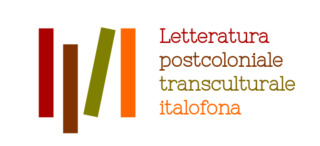Raum und Bewegung in Erzählungen des Widerständigen.
Autorin: Maria Kirchmair
Seit 2005 bildet sich in Italien verstärkt eine postkoloniale Erzählliteratur heraus, die mit Namen wie Gabriella Ghermandi, Garane Garane, Cristina Ubax Ali Farah, Igiaba Scego, Mario Domenichelli oder Wu Ming 2 und Antar Mohamed Marincola verbunden ist. Die Autor_innen schreiben an einer Literatur der Fluchtlinien, die zum einen die koloniale und postkoloniale Geschichte Italiens ins Bewusstsein ruft und neu perspektiviert, zum anderen existenzielle Grenzerfahrungen von Individuen in Bewegung zu Beginn des 21. Jahrhunderts in Zusammenhang mit Diaspora und Exil, Migration und globaler Mobilität reflektiert.
Maria Kirchmair liefert nun die erste deutschsprachige Studie zur postkolonialen Erzählliteratur Italiens. Über eine sowohl thematische als auch ästhetische Analyse befasst sie sich speziell mit der narrativen Darstellung von »Raum« und Raumwahrnehmung, Bewegung und Transformationsprozessen von »Identität« in kolonialen und postkolonialen Kontexten.
 Authors between Texts, Editors and Public Discourses.
Authors between Texts, Editors and Public Discourses.
Literature and film generate symbolic as well as economic capital. As such, aesthetic productions exist in various contexts following contrasting rules. Which role(s) do authors and filmmakers play in positioning themselves in this conflictive relation?
Bringing together fourteen essays by scholars from Germany, the USA, the UK and France, this volume examines the multiple ways in which the progressive (self-) fashioning of authors and filmmakers interacts with the public sphere, generating authorial postures, and thus arouses attention. It questions the autonomous nature of the artistic creation and highlights the parallels and differences between the more or less clear-cut national contexts, in order to elucidate the complexity of authorship from a multifaceted perspective, combining contributions from literary and cultural studies, as well as film, media, and communication studies.
Dealing with Authorship, as a transversal venture, brings together reflections on leading critics, exploring works and postures of canonical and non-canonical authors and filmmakers. An uncommon and challenging picture of authorship is explored here, across national and international artistic fields that affect Africa, Europe and America. The volume raises the questions of cultural linkages between South and North, imbalances between the mainstream and the margins in an economic, literary or “racial” dimension, and, more broadly, the relation of power and agency between artists, editors, critics, publics, media and markets.